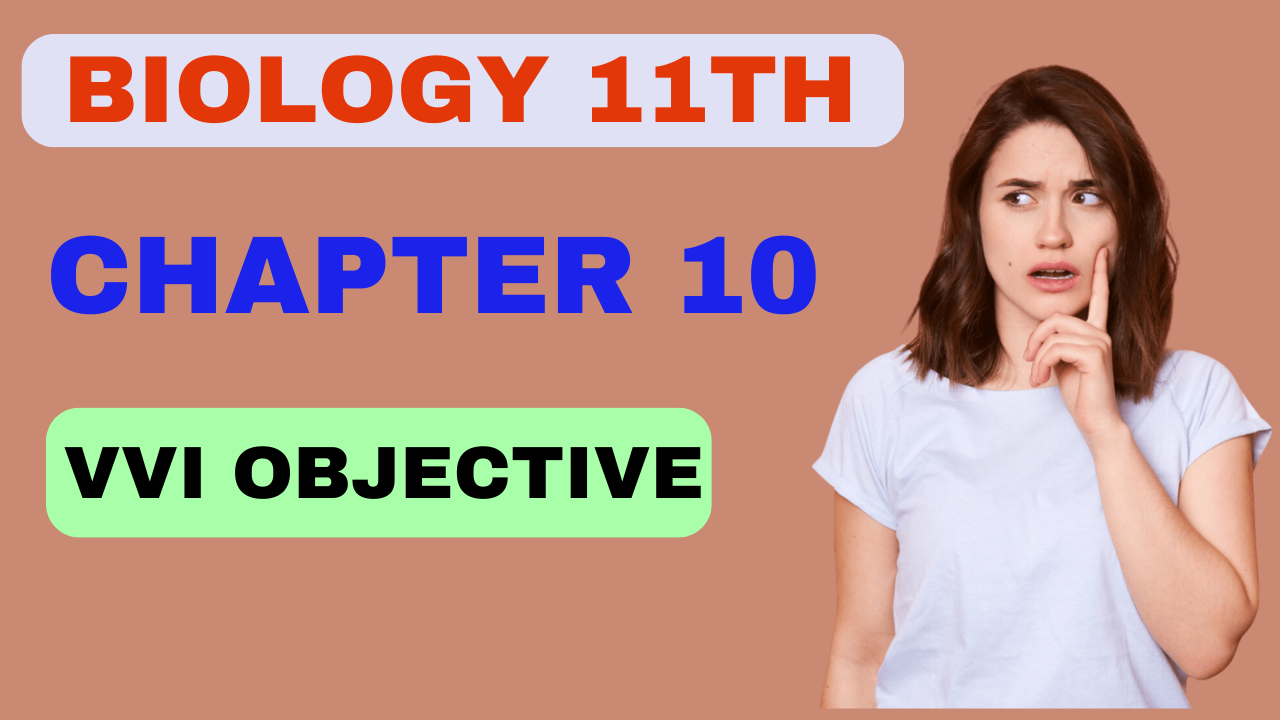(1.)Which one is incorrect :
(A) Flower has a modified stem
(B) The fruit of coconut is called a drupe
(C) Onion belongs to the family Liliaceae
(D) Nodes are present on the stem
Answer: (A) Flower is a modified stem
(2.)Which are the ‘amphibians of the plant kingdom:
(A) Spirogyra
(B) Bryophyta
(C) Pteridophyta
(D) All
Answer: (B) Bryophyta
(3.)The Protein Part of an enzyme is :
(A) Proenyme
(B) Coenzyme
(C) Apoenzyme
(D) None
Answer: (C) Apoenzyme
(4.)The Father of Taxonomy’ is :
(A) Mendel
(B) Bentham
(C) Hooker
(D) Linnaeus
Answer: (D) Linnaeus
(5.)The hanging root of the banyan tree is known as:
(A) Pneumatophores
(B) Stilt root
(C) Prop root
(D) Bulter’s root
Answer: (C) Prop roots
(6.)Transport of water in the symplast pathway takes place through :
(A) Cytoplasm
(B) cell wall
(C) Both (a) & (b)
(D) None
Answer: (A) Cytoplasm
(7.)Incomplete glucose oxidation in anaerobic respiration forms:
(A) Glucose & CO2
(B) H2O & CO2
(C) Fructose & H2O
(D) Alcohol & CO2
Answer: (D) Alcohol & CO2
(8)Kranz Anatomy is found in:
(A) C3 Plants
(B) C4 Plants
(C) Cs Plants
(D) All Plants
Answer: (B) C4 Plants
(9.)The microbe (bacteria) found in leguminous plant roots is:
(A) Rhizobium
(B) Nitrobacter
(C) Nitrosomonas
(D) Pseudomonas
Answer: (A) Rhizobium
(10)The age of a tree is determined by :
(A) Counting its leaves
(B) Measuring its width
(C) Counting the annual rings
(D) Counting its branches
Answer: (C) Counting the annual rings
(11.)In racemose inflorescence, the smallest flower is :
(A) At the Top
(B) At the bottom
(C) In the middle
(D) Anywhere
Answer: (A) At the Top
(12)The method of supplying water to the plant:
(A) Imbibition
(B) Osmosis
(C) Diffusion
(D) Guttation
Answer: (B) Osmosis
(13.)Where does Kreb’s cycle occur :
(A) Cytoplasm
(B) Mitochondria
(C) Chloroplast
(D) Lysosome
Answer: (B) Mitochondria
(14)Gibberellin was first discovered in :
(A) Algae
(B) Fungi
(C) Bacteria
(D) Angiosperms
Answer: (B) Fungi
(15)Calvin cycle :
(A) Depends on light
(B) Does not depend on light
(C) Occurs only in light
(D) Occurs only in dark
Answer: (B) Does not depend on light
(16)The main constituent of chlorophyll is :
(A) Ca
(B) Mn
(C) Mg
(D) N
Answer: (B) Mn
(17)Crossing over occurs in
(A) Leptotene
(B) Zygotene
(C) Pachytene
(D) Diplotene
Answer: (C) Pachytene
(18)The type of vascular bundle, in which the xylem is present on both sides of the phloem is called:
(A) Radial
(B) Collateral
(c) Bicollateral
(D) Amphioribal
Answer: (C) Bicollateral
(19)Protein Synthesis is related to :
(A) Nucleus
(B) Ribosome
(C) Chromatin
(D) Plasmalemma
Answer: (B) Ribosome
(20)The two names of ‘Binomial Nomenclature’ is:
(A) Genus & Species
(B) Genus & Order
(C) Genus & Family
(D) Genus & Class
Answer: (A) Genus & Species
(21)Division of the nucleus is called:
(A) Cytokinesis
(B) Crossing over
(C) Karyokinesis
(D) Pachytene
Answer: (C) Karyokinesis
(22)Emphysema is a disorder related to :
(A) Respiration
(B) Circulation
(C) Digestion
(D) Exertion
Answer: (A) Respiration
(23)Water vascular System is characteristic of Phylum :
(A) Porifera
(B) Echinodermata
(C) Annelida
(D) Chordata
Answer: (B) Echinodermata
(24)Internal Ear is filled with:
(A) Perilymph
(B) Endolymph
(C) Blood
(D) Lymph
Answer: (B) Endolymph
(25)The structural & functional unit of the kidney is :
(A) Nephridia
(B) Neuron
(C) Nephron
(D) None
Answer: (C) Nephron
(26)Pace-maker is:
(A) SA node
(B) AV node
(C) Bundle of His
(D) Purkinje’s fiber
Answer: (A) SA node
(27)How many times a cell will divide mitotically to produce 256 cells?
(A) 8
(B) 32
(C) 64
(D) 225
Answer: (A) 8
(28)Carbohydrate digesting enzyme is :
(A) Nuclease
(B) Lipase
(C) Amylase
(D) Trypsin
Answer: (C) Amylase
(29)Synthesis of DNA occurs in :
(A) S – Phase
(B) G1 – Phase
(C) M – Phase
(D) G2 – Phase
Answer: (A) S – Phase
(30)Epinephrine and Nor-Epinephrine are also called:
(A) Life-saving hormone
(B) Growth hormone
(C) Emergency hormone
(D) Sex hormone
Answer: (C) Emergency hormone
(31)Large Brain is :
(A) Cerebrum
(B) Medulla
(C) cerebellum
(D) Diencephalon
Answer: (A) Cerebrum
(32)Cellulose is a polymer of :
(A) Fatty Acid
(B) Amino Acid
(C) Glucose
(D) Sucrose
Answer: (C) Glucose
(33)7OS ribosome is found in :
(A) Eukaryotes
(B) Prokaryotes
(C) All organisms
(D) Only Animals
Answer: (B) Prokaryotes
(34)Ball & Socket joint is present in :
(A) Knee
(B) Elbow
(C) Shoulder
(D) None
Answer: (C) Shoulder
(35)Uricotelic Organism is :
(A) Insects
(B) Lizard
(C) Birds
(D) All
Answer: (D) All
(36)In the human heart, the tricuspid valve is found between :
(A) Right atria & right ventricle
(B) Left atria and left ventricle
(C) Both (a ) and (b)
(D) None of these
Answer: (A) Right atria & right ventricle
(37)Cartilage is a :
(A) Nervous tissue
(B) Epithelial tissue
(C) Muscular tissue
(D) Connective tissue
Answer: (D) Connective tissue
(38)Warm-blooded animals are:
(A) Pisces
(B) Amphibians
(C) Reptilians
(D) Aves
Answer: (D) Aves
(39)Full form of ADH :
(A) Adenosine dehydrogenase
(B) Adenohypophysis
(C) Antidiuretic Hormone
(D) None of these
Answer: (C) Antidiuretic Hormone
(40)In earthworms, nephridia are:
(A) Secretary organs
(B) Excretory organs
(C) Sensory organs
(D) Stimulatory organ
Answer: (B) Excretory organs
